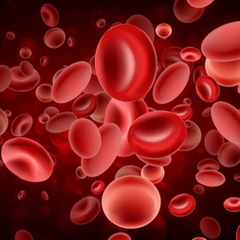
Navigating Novel Therapies: ADCs, BsAbs, and CAR T in RRMM
Panelists discuss how bispecifics are reversing the historical paradigm of diminishing returns in relapsed/refractory multiple myeloma, achieving 60% to 70% response rates lasting over a year in heavily pretreated patients.
Episodes in this series

The emergence of multiple therapeutic modalities targeting similar antigens has created new opportunities and challenges for patients with relapsed/refractory multiple myeloma. Both BCMA and GPRC5D can be approached through different treatment platforms including chimeric antigen receptor (CAR) T cells, bispecific antibodies, and antibody-drug conjugates, requiring careful consideration of sequencing strategies. The current approach favors using BCMA-directed CAR T-cell therapy before bispecific antibodies when feasible, as patients who relapse after CAR T-cell therapy can still achieve meaningful responses to bispecifics, while the reverse sequence appears less effective.
Patient selection between modalities depends on several critical factors, including disease aggressiveness, manufacturing timelines, and individual patient characteristics. Rapidly progressive disease may necessitate off-the-shelf bispecific therapy due to the immediate availability compared with the weeks required for CAR T-cell manufacturing. Patients with central nervous system concerns or those requiring dose flexibility may benefit from bispecific approaches, as these therapies can be held, dose-reduced, or discontinued if complications arise, unlike CAR T-cell therapy, where cellular products cannot be recalled once infused.
Geographic accessibility and caregiver support significantly influence treatment selection, particularly for patients living far from specialized centers. While CAR T-cell therapy requires extended stays near treatment facilities, bispecific antibodies can potentially be administered closer to patients’ homes after initial step-up dosing. However, the learning curve associated with these novel therapies mirrors the early experience with monoclonal antibodies, with improved safety profiles emerging as clinical experience grows and supportive care measures are optimized, suggesting broader implementation will become increasingly feasible for patients across diverse practice settings.
Newsletter
Stay up to date on recent advances in the multidisciplinary approach to cancer.






































